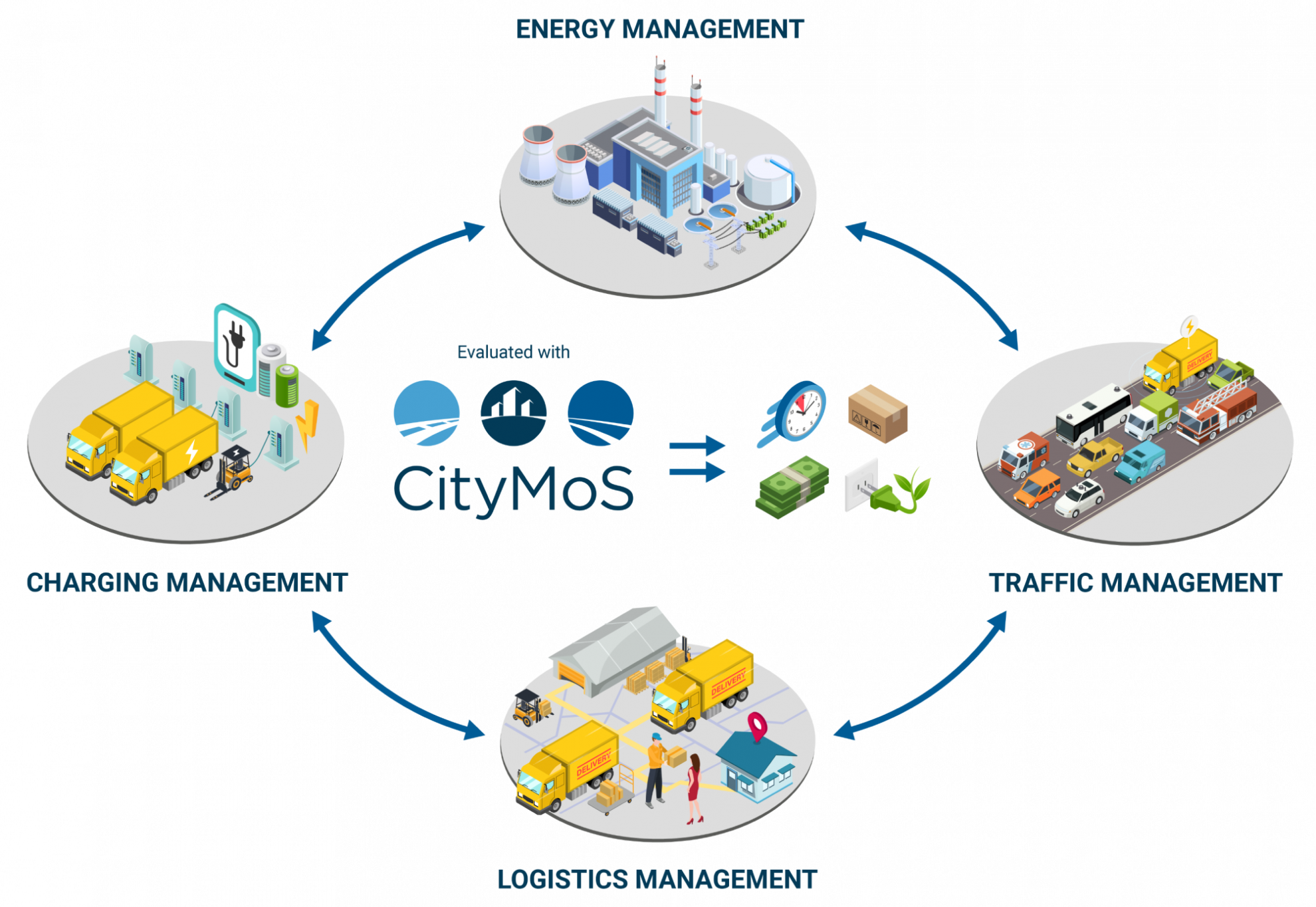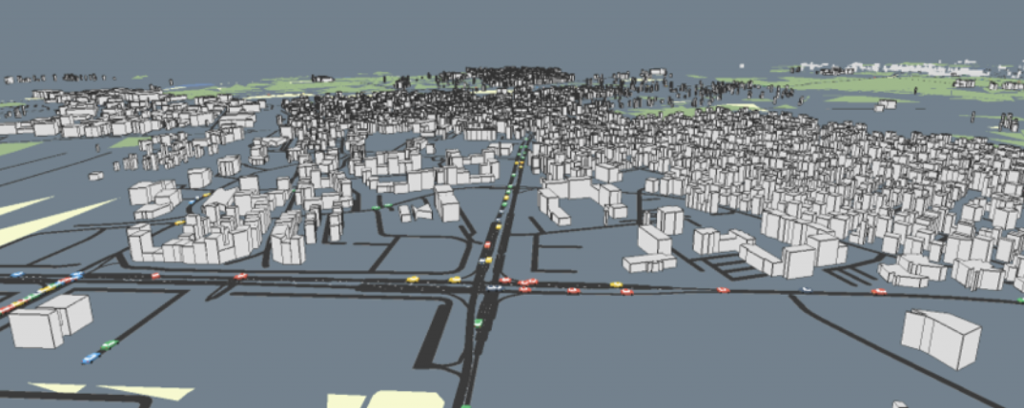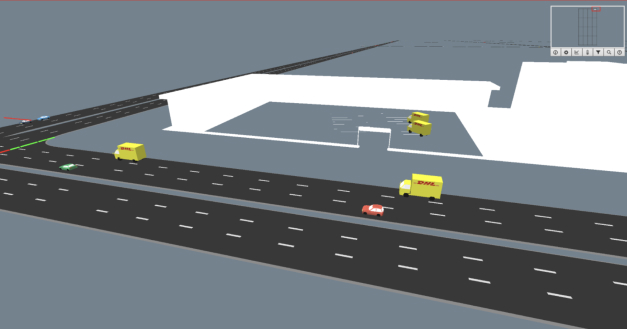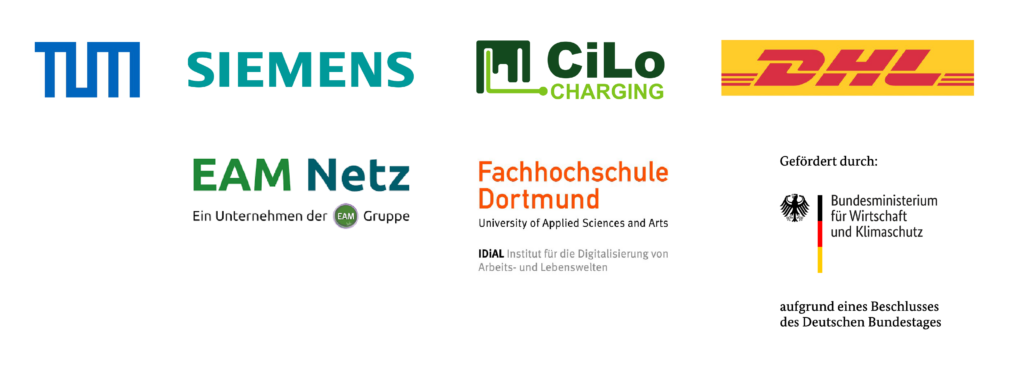

The CiLoCharging project aims to enable an optimized, flexible and demand-oriented solution for the use of electric vehicles in the distribution service of a logistics terminal from an economic, technical and environmental perspective by taking into account the requirements from the domains of energy, logistics, charging infrastructure and mobility management.
In order to be able to adequately take into account the framework conditions typical for general cargo logistics and to ensure the scalability of the fleet terminals in an economical manner, both charging management must be integrated into the existing logistics processes and smart energy management must be provided for integrating electrified logistics terminals into the electrical distribution network.




